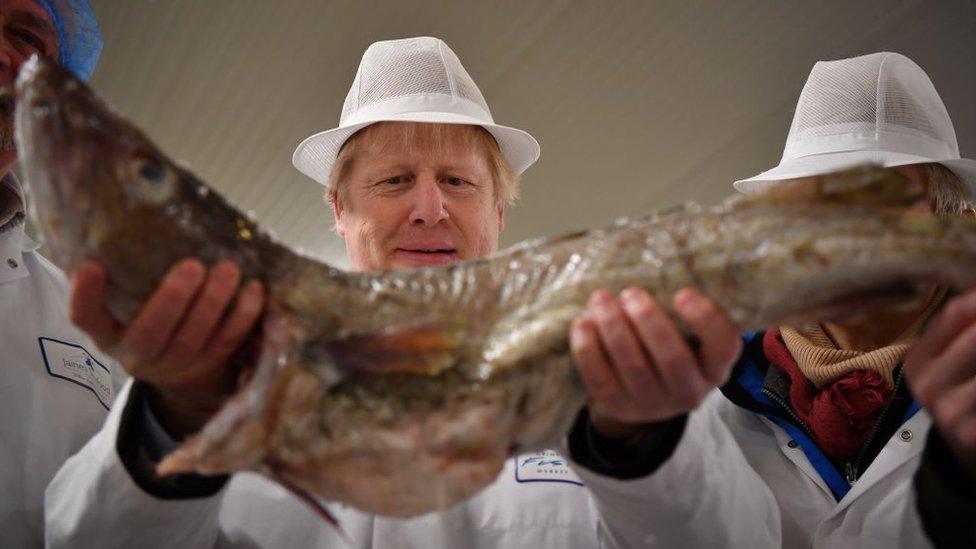Brexit: Irish border 'could be exploited by gangs'
- Published
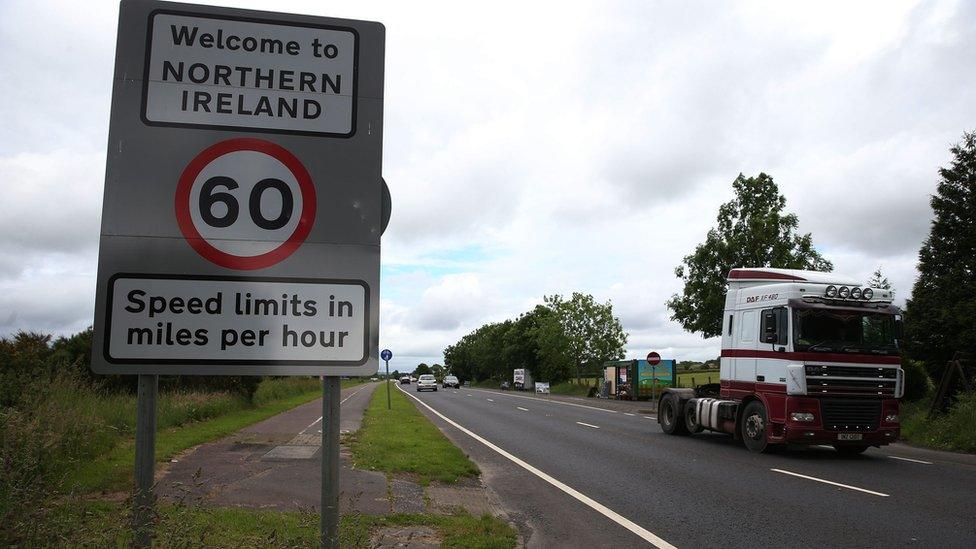
ACC McEwan says there are an estimated 83 criminal gangs in NI with 16 involved in cross-border activity
A senior PSNI officer has warned that organised criminals could exploit the Irish border once the Brexit transition period ends.
Assistant Chief Constable Mark McEwan said he was concerned organised gangs involved in smuggling and people trafficking would cross the border into NI if security tightens in GB ports.
He was speaking at a House of Lords committee on Tuesday.
The transition period is due to end on 31 December 2020.
"We have the movement of organised crime groups who will move across Europe effectively carrying out criminality as they go and sometimes we see them coming in again through air or sea in Ireland and up to Northern Ireland and into Great Britain," the officer said.
He warned there was a "risk that could increase as security tightens around other ports or in other ports in Great Britain".
He also said that risk could be "exacerbated following the transition period".
Earlier this month, PSNI Chief Constable Simon Byrne told MPs on the Northern Ireland Affairs Committee that there was a danger the border would be used to smuggle drugs, guns and people.
ACC McEwan told the Lords committee, which is examining policing post-Brexit, there were an estimated 83 criminal gangs in Northern Ireland with 16 involved in cross-border activity.
He said there were 22 gangs with links to paramilitary organisations.
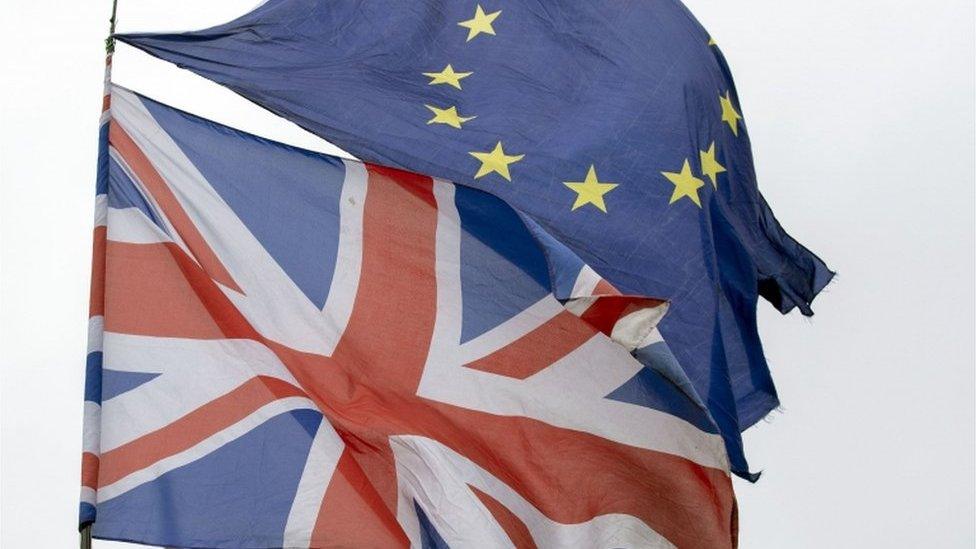
Dr Amanda Kramer, from Queen's University Belfast, said the border was "very porous"
ACC McEwan, who is the lead officer in the PSNI's planning for the EU exit, said relations between his force and the Irish police were good, and close co-operation and intelligence sharing would continue.
The committee also heard evidence from leading academics with knowledge of policing both north and south of the border.
Dr Amanda Kramer, from Queen's University Belfast, said the border was "very porous" and "any opportunities will be exploited by criminality" in the months ahead.
Dr Vicky Conway, from Dublin City University, discussed the issue of extradition with peers.
The issue was raised earlier this month by the PSNI chief constable who warned it may take up to a year to bring suspects back to Northern Ireland from EU member states post-Brexit after the UK loses access to European Arrest Warrants.
Dr Conway said extradition would become a big issue and said in the coming months "Ireland will be asked to extradite political prisoners to the North".
She also said "tensions might flare up" and added that "protests are entirely foreseeable".
- Published28 September 2020
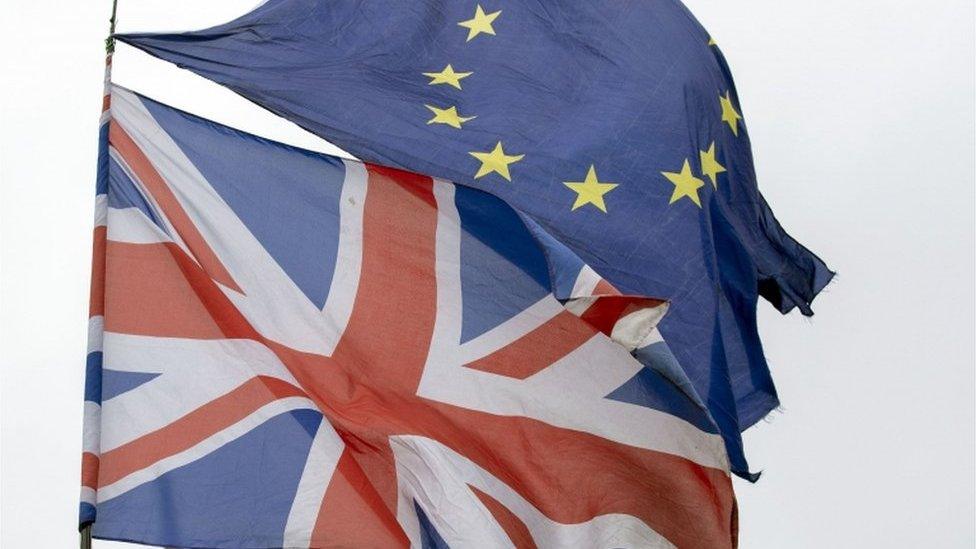
- Published16 November 2020
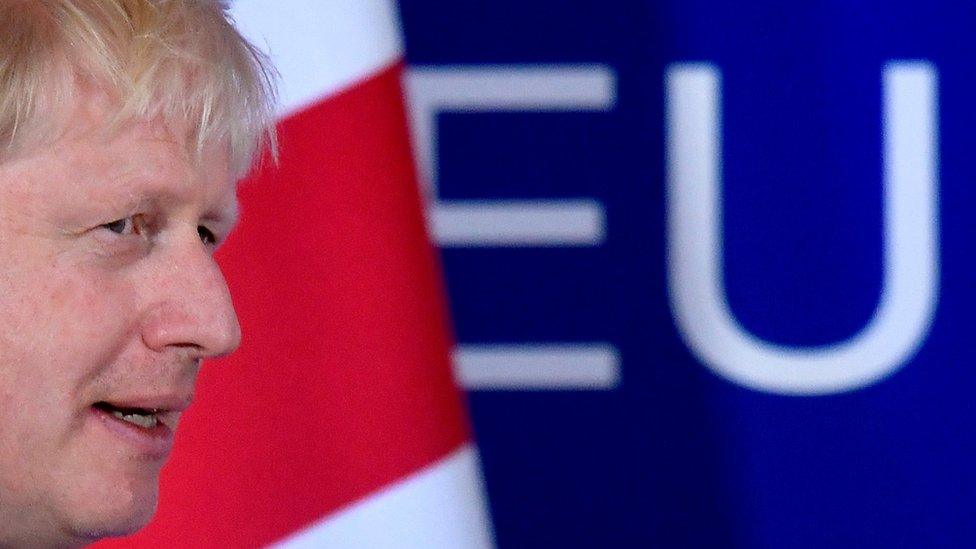
- Published15 November 2020
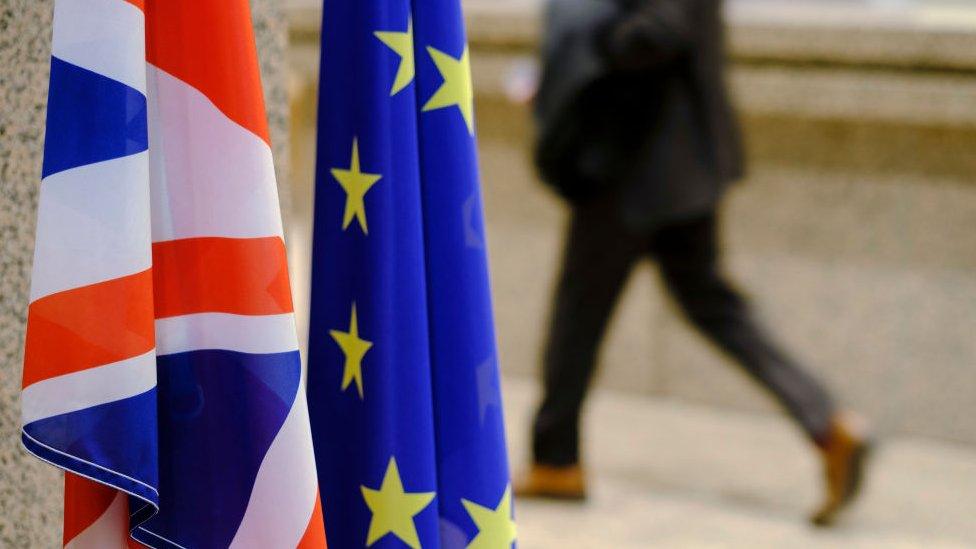
- Published18 December 2020
